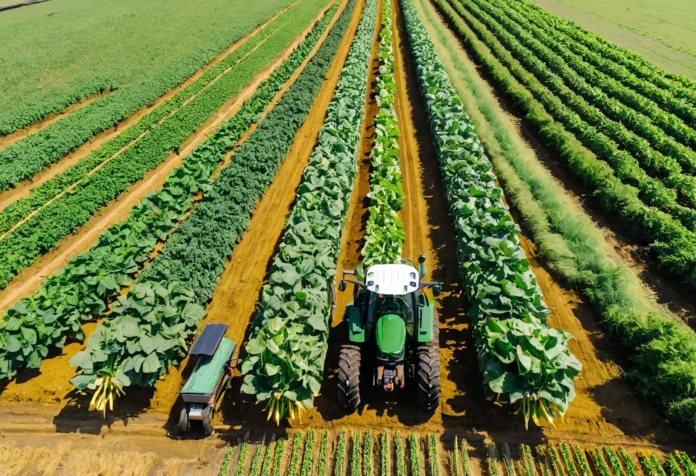Sustainable agriculture is at the forefront of farming in 2024, as technological innovations reshape the way food is produced. Farmers are adopting precision farming, vertical agriculture, and robotics to increase efficiency while reducing environmental impact. With climate change and resource scarcity presenting major challenges, these innovations are helping ensure food security for the future.
Precision Farming: Maximizing Yield with Minimal Resources
One of the most significant advances in agriculture is precision farming, which uses data-driven technologies to optimize crop yields while minimizing resource use. In 2024, farmers are increasingly turning to satellite imagery, GPS technology, and IoT sensors to monitor soil conditions, weather patterns, and crop health in real-time.
This approach allows for precise application of water, fertilizers, and pesticides, reducing waste and improving efficiency. As a result, farmers can grow more food with fewer inputs, contributing to both higher profitability and environmental sustainability. Companies like John Deere and Trimble are leading the way in developing precision farming tools that are helping farmers make smarter decisions source.
Vertical Farming: Growing Crops in Urban Spaces
As urbanization accelerates, traditional farming is facing challenges due to limited land availability. In response, vertical farming is emerging as a solution for growing crops in urban environments. This innovative technique involves cultivating crops in stacked layers using controlled environments, often in warehouses or skyscrapers.
In 2024, vertical farms are producing high-quality vegetables, herbs, and fruits with significantly lower water and land requirements compared to traditional farming. Using LED lights, hydroponics, and automated systems, vertical farms can operate year-round and reduce the carbon footprint associated with transporting produce over long distances. Companies like Aero Farms and Plenty are spearheading the vertical farming revolution, bringing fresh produce closer to urban consumers source.
Robotics and Automation: The Future of Farming
Robotics and automation are playing an increasingly important role in agriculture. From autonomous tractors to drones that monitor crop health, farmers are leveraging these technologies to increase efficiency and reduce labor costs. In 2024, advancements in AI-powered robotics are enabling machines to perform tasks like planting, harvesting, and even weeding with minimal human intervention.
Autonomous farming equipment is becoming more accessible to small- and large-scale farmers alike, helping them streamline operations and increase productivity. Robots are not only enhancing productivity but also addressing the labour shortages that many farming communities face. Leading agricultural technology companies like AGCO and Farm Wise are at the forefront of developing autonomous farming solutions source.
Climate-Resilient Crops: Adapting to Changing Conditions
With climate change posing a significant threat to agriculture, researchers are developing climate-resilient crops that can withstand extreme weather conditions, such as drought, floods, and heatwaves. In 2024, genetic engineering and traditional breeding techniques are being used to develop crops that are more resistant to environmental stressors.
These crops require less water and can thrive in harsher climates, making them crucial for food security in regions affected by climate change. Crops like drought-tolerant maize and salt-resistant rice are being introduced in various parts of the world to help farmers adapt to the changing environment.
Sustainable Agriculture: Reducing Environmental Impact
Sustainability remains a key focus for the agricultural industry in 2024. Farmers are increasingly adopting practices like regenerative agriculture, which focuses on improving soil health, reducing chemical inputs, and enhancing biodiversity. These practices not only reduce the environmental impact of farming but also contribute to long-term food security by ensuring that farmland remains productive for future generations.
In addition, agroforestry, crop rotation, and organic farming are becoming more common as farmers seek ways to reduce carbon emissions and restore ecosystems. Organizations like the Food and Agriculture Organization (FAO) are actively promoting sustainable farming practices to ensure a balance between agricultural productivity and environmental stewardship.
Conclusion: The Future of Farming is Sustainable and Technological
As we progress through 2024, the agricultural sector is embracing new technologies and sustainable practices to meet the growing demand for food. With innovations like precision farming, vertical agriculture, robotics, and climate-resilient crops, the future of farming looks promising. These advancements are not only increasing efficiency but also ensuring that farming becomes more environmentally sustainable, enabling future generations to thrive.





